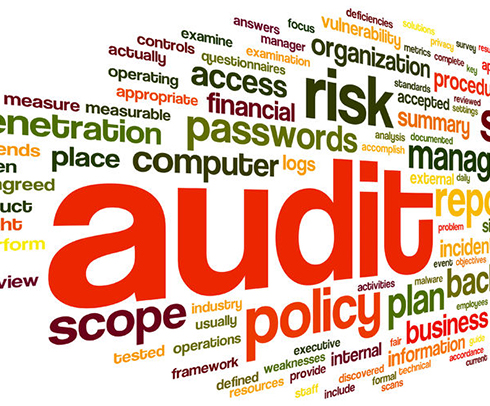Medical Billing and Coding Audits
- It’s hard to say, but we’re the best!
You say we do…
Does Your Practice Need a Comprehensive
Medical Billing and Coding Audit?

Audit Allow You to Improve Medical Care and Revenue!
The audit allows you to improve medical care and reimbursement. Medical billing and coding audit to target and evaluate procedural and diagnosis code selection as determined by physician documentation for completeness and accuracy. MD CAVE has an expert dedicated team to find out mistakes on regular basis to discourage dead claims. This is one of the ways to minimize human errors. In the end, generated reports mentioned the glitch points to activate the dead claims. This is an important part of the whole medical billing process. In this way, reimbursement takes a boost, and at the same time provider can get the maximum reward for the patient’s care.
Regular Audits, lower Compliance Risk, Improve Reimbursement!

Maintain Compliance & Maximize Your Reimbursement
For physicians, accurate coding is essential to receiving payment for the services rendered.
The simplest and most effective approach is to audit a sample of charts. Physicians can make adjustments before their coding is contested by payers thanks to the regulatory services and medical coding compliance provided by MD CAVE. We offer code audit services to support you in maintaining compliance with various industry standards. Additionally, the providers are now able to fully code interactions that could have previously been down-coded thanks to our coding audit services.

What is Coding Audit?
An internal or external audit of a medical office’s coding procedures using patient medical information is known as a “coding audit.”

How are Coding Audits Conducted?
We make use of the most recent editions of AMA and industry coding standards, Correct Coding Initiative revisions, CMS/Medicare LMRPs,
and all accepted norms and practices for coding based on a certain specialty. A study of our results on a case-by-case basis is also a part of our medical code audit services. Our assessments of the correctness of medical coding are intended to be a part of a program for ongoing quality improvement. It provides the input medical professionals and surgical coders need to better precisely classify patient-care services.

Monthly, Quarterly or Annual Audits:
Even superior alternatives might include monthly audits. The amount of constant coder support offered by these frequent audits is unsurpassed.
Monthly audits identify errors and poor coding practices and stop them from repeating themselves and turning into bigger problems. A monthly audit also offers extra opportunity for learning. More individualized, in-the-moment feedback is possible thanks to the higher frequency. As changes to the American Hospital Association (AHA) Coding Clinic are released, you have more chances to apply.
A minimum of quarterly audits is advised even if annual audits are necessary. If at all possible, monthly audits are the greatest choice for ongoing development. More frequent audits enable ongoing feedback, which helps halt significant coding errors.

Exactly Why Are Coding Audits Crucial?
A code auditor examines many aspects of medical office claims, such as:
.Evaluation of CPT code usage
.Identify the appropriate service locations.
.Check for missing or improperly used modifiers.
.Identify false diagnosis (does not indicate medical necessity)
.Determining the correctness, trends, and shortcomings of code and documentation
.Determine if the accompanying paperwork is sufficient to explain the patient's care.
.Find any bundling or clustering problems
.Analyze whether or whether services are appropriate and required.

The Extent of Coding Audits
.Regular coding audits have a variety of advantages that enhance how your practice runs.
.Make sure your coding adheres to appropriate, current standards.
.Compared to your peers' coding techniques
.Determine where money is being lost (i.e., under-coding to avoid possible denials)
.Find places where compliance is an issue.
Always keep in mind that continual improvement is the ultimate aim of every audit, regardless of its nature or scope. Your practice has the chance to spot and stop compliance and payment concerns through the audit process.
Types of Coding Audit:

Post-Bill (Retrospective)
An audit that looks back into submitted claims coded during the present audit is known as a post-bill audit (usually within the last quarter).

Pre-Bill (Prospective)
A prospective audit, sometimes known as a “concurrent” audit, examines claims that have been coded but not yet billed.
Outside and Inside Advantages of Coding Audits!
Keeping up with new regulations as they are always being released is difficult. Coding audits reveal new laws, guidelines, payer requirements, and other problems that have an impact on your specialties. The audit enables you to implement new codes and adjustments correctly from the start.
More accurately classified claims with fewer rejections and denials are the end outcome of routine coding checks. For numerous reasons, including mistakes, a lack of supporting documents, and others, claims may be rejected and refused. Regular coding audits offer an opportunity to find and fix problems so that more claims can be settled promptly and in full.
The right level of accuracy and precision must be used when coding. The coding audit reveals coding practices, such as under-coding services, that have an impact on your reimbursement. By coding appropriately, you can avoid accepting less than you are due and ensure that you are paid correctly. National payers should pay your practice the appropriate payment.
More claims are paid because undertrained or overworked coders make fewer errors. You lose time and money as a result of rejections and denials. Your office will operate more effectively if you do frequent coding audits to raise the caliber of your coding. These advantages make sure that your cash flow is optimized and that you utilize the time of your workers effectively. Regular coding audits minimize overpayments and underpayments, lessen the frequency of rejections and denials, maintain the compliance of your practice, motivate your team to concentrate on high-quality coding, and eventually increase your profit.
Coding Audit Sequence
An ideal choice for a busy business is external audits. Any potential conflict of interest does not apply to auditors who sit outside the practice. An outsider offers a fresh perspective and detects coding errors without worrying about how they may affect. Internal auditors could overlook something that is obvious to outsiders. More weight is given to recommendations made by outside, reliable sources than by internal ones. It can be challenging to choose to work with a reputable source to conduct a coding.
When you decide to use an outside source for your coding audit, the first thing you should do is get in touch with a business that has expertise performing external coding audits for practices like yours. Coding auditors are experts in a distinct field that is unrelated to coding. Many are also knowledgeable in the subspecialties that require precision coding the most in order to maximize their collections. Auditors are more than just trained programmers; they also keep up with new, updated codes and ever-changing laws.
What instances are reviewed is determined by the audit's scope. The breadth should be sufficient to give an accurate picture while not being so broad as to consume an excessive amount of time or resources. With the help of your auditor, choose the scope that best suits your requirements.
Advanced algorithms created by CMS and other national payers identify coding and billing errors beforehand and electronically reject the claim. To assist claims, pass these filters, a coding auditor checks for the following things:
• Codes correspond to the "Reason for Visit."
• The primary code is supported by secondary codes.
• It is not advisable to utilize outdated codes.
• Correcting incorrect medical necessity determinations is necessary.
• Codes are applied in accordance with the most recent recommendations.
Search for codes that have nothing to do with the diagnosis or treatment. Payers become concerned when a procedure is coded even though it has nothing to do with the diagnosis. For instance, mentioning a chronic disease even if it has nothing to do with the current cause for a visit could raise a red flag. A government body launches an investigation after receiving too many reports of this nature.
Keep in mind that the goal of an external coding audit is to enhance your profession.
After the audit, a good auditor meets with you privately to go through the results. In this session, we'll talk about how to conduct reviews, how to estimate mistake rates, the prevalence and frequency of problems, trends, and more. This conversation offers a great chance to pick up new information. Some of your coding errors are resolved by the auditor by determining their underlying cause. The auditor works with you to establish goals or benchmarks for the upcoming audit as well as techniques to assist you code more accurately.
Free Consultation
Get An Appointment For Get Release.
Get Every Single
Updates From Here.

